Callings
SEARCH BY TITLE
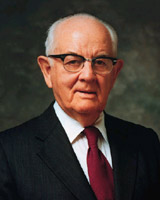 Bewildered and Shocked
Bewildered and Shocked
I remember when I was called to be a counselor in the stake presidency. I was in my twenties. President Grant came down to help to bury my father, who was the former stake president, and reorganize the stake. I was the stake clerk. I recall that some of my relatives came to President Grant, unknown to me, after I had been chosen, and said, “President Grant, it’s a mistake to call a young man like that to a position of responsibility and make an old man of him and tie him down.” Finally, after some discussion, President Grant said very calmly, but firmly, “Well, Spencer has been called to this work, and he can do as he pleases about it,” and, of course, when the call came, I accepted it gladly, and I have received great blessings therefrom. A few days ago one of my well-to-do clients came to me and said, “Spencer, you’re going away from us?” “Yes,” I said. “Well, this is going to ruin you financially,” he continued. “You are just getting started well; your business is prospering. You are making a lot of money now and the future looks bright yet. I don’t know how you can do this. You don’t have to accept the call, do you?” And I said, “Brother, we do not have to accept any call, but if you understand the Mormon way of life, those of us who have been reared in the Church and understand the discipline of the Church, we just always do accept such calls.” And I further said to him: “Do you remember what Luke said, ‘. . . for a man’s life consisteth not in the abundance of the things which he possesseth’ (Luke 12:15), and all the bonds, lands, houses, and livestock are just things that mean so little in a person’s abundant life.”
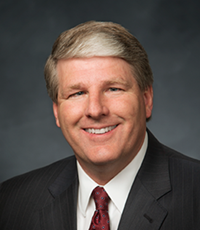 Cairns on the Path of Mortality
Cairns on the Path of Mortality
Many people hold offices in the Church for short periods of time. Those who lead today will be followers tomorrow, and those who follow today are tomorrow’s leaders. The lives of John the Baptist and Jesus Christ clearly teach this principle. The Bible teaches that as John the Baptist’s mission progressed, he became very popular among the believers. After baptizing the Savior, John’s disciples came to him with a concern: “And they came unto John, and said unto him, Rabbi, he that was with thee beyond Jordan, to whom thou barest witness, behold, the same baptizeth, and all men come to him”. Now, these disciples were concerned because their master was losing prestige or influence, but John the Baptist understood that his time was coming to an end and the Savior’s mission was beginning. He replied: “He must increase, but I must decrease”. Jesus Christ also recognized that there was a time to teach and a time to learn. At the time of the Passover, Jesus’ family traveled to Jerusalem. Upon finishing their business, they returned to Nazareth. After traveling for a day, Joseph and Mary noticed that Jesus was not in their company. After three days they finally found him in the temple teaching and answering questions of those who were astonished at his learning. Jesus returned with his earthly family to Nazareth, and, as stated in Luke 2:52, he “increased in wisdom and stature, and in favour with God and man.” This experience illustrates that Jesus, in addition to being a master teacher, also understood that there were things to learn from his association with parents and family. At some points along our mortal path we are followers and at others we are leaders. We lead those within our stewardship and follow those entrusted with our care. When we act in positions of leadership, it is exactly that, leadership—not “dragership” or “pushership” but leadership. We should lead and guide, not drag and push individuals to Christ. Although directed at those holding the priesthood, I am sure section 121 of the Doctrine and Covenants applies to all. In verse 41 we read: “No power or influence can or ought to be maintained by virtue of the priesthood, only by persuasion, by long-suffering, by gentleness and meekness, and by love unfeigned.”
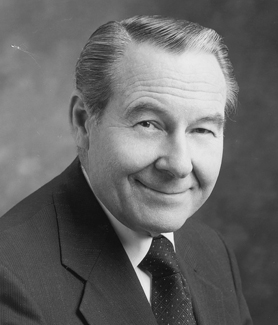 Do It
Do It
President Kimball, for the past several months, I have been carrying your message of love and greeting to Church members across the sea; and now here this morning I bring to you the sincere affection and continuing loyalty of more than 100,000 members of the Church in the South Pacific area. They are anxiously counting the days until your arrival next February to conduct the most ambitious and widespread series of Church conferences ever undertaken. . . Such is the schedule of a man who has challenged a people to “lengthen their stride.” Such is the schedule of a man who declares not only, “Do as I say,” but more importantly, “Do as I do.” It is so much easier to respond when the trump gives us that certain sound of example. Prominently displayed on President Kimball’s desk is a slogan which reads simply, “DO IT.” With this inspired leader, personal convenience comes second. Everything is done to meet the Lords convenience. His example for work has become legend and establishes an example for us all to follow. . . Now is that time, and a prophet who knows how to work is leading the way. But one fact is certain—this latter-day work requires thousands of us who are willing to match stride with the prophet. A prophet who walks alone can do little more than mark time. Every dispensation has had the crying need for hard-working, qualified disciples. President Kimball is calling for the greatest army of hard workers in the history of the Church on earth. May we consider together these three objectives as a starting point in our preparation to match stride with the prophet: First, we must be better informed about the doctrine; second, we must be more willing to just DO IT; and third, we must be more readily available to the gifts of the Spirit.
 Give the Lord Your Loyalty
Give the Lord Your Loyalty
Perfection is our goal, but we all still have a long way to go to obtain perfection. Maintain your integrity and seek to live by the Spirit. Keep all the commandments, so that you will one day stand blameless before God. Give the Lord this year and every year your faith and loyalty, that he may look with pleasure upon what you have done. Loyalty to the Lord also includes loyalty to those leaders he has chosen. I know that those whom the Lord has called to lead his children in this dispensation of time receive divine inspiration. My grandfather sat in the first Quorum of the Twelve; my father served as mission president and stake president in a much smaller church than we have today under five presidents of the Church; I have served as a stake officer and General Authority for sixty-one years. Our three lives have encompassed essentially the whole period of the restored Church; taken together, we have known with some intimacy almost all the General Authorities since the Restoration. On that basis I tell you that those Church leaders were men whose great accomplishments have gone beyond their great natural abilities, for the Lord has given them power to do his work. And what I say of the Lord’s influence on leaders I say also of countless thousands of others in whose homes I have stayed, whose testimonies I have heard, and whose good works and unselfish service I have seen. I have learned that where there is a prayerful heart, a hungering after righteousness, a forsaking of sins, and obedience to the commandments of God, the Lord pours out more and more light until there is finally power to pierce the heavenly veil and to know more than man knows. A person of such righteousness has the priceless promise that one day he shall see the Lord’s face and know that he is. Oftentimes special notice is taken of the General Authorities, and rightly so, since we all have the responsibility to pray for them, that they may be successful in their callings; but I know that the Lord is just as pleased with any soul on this earth who magnifies whatever calling the Lord gives him as he is with those whose lives and accomplishments are more visible
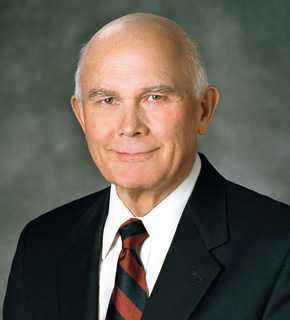 Good, Better, Best
Good, Better, Best
Church leaders should be aware that Church meetings and activities can become too complex and burdensome if a ward or a stake tries to have the membership do everything that is good and possible in our numerous Church programs. Priorities are needed there also. Members of the Quorum of the Twelve have stressed the importance of exercising inspired judgment in Church programs and activities. Elder L. Tom Perry taught this principle in our first worldwide leadership training meeting in 2003. Counseling the same leaders in 2004, Elder Richard G. Scott said: “Adjust your activities to be consistent with your local conditions and resources. … Make sure that the essential needs are met, but do not go overboard in creating so many good things to do that the essential ones are not accomplished. … Remember, don’t magnify the work to be done—simplify it.” In general conference last year, Elder M. Russell Ballard warned against the deterioration of family relationships that can result when we spend excess time on ineffective activities that yield little spiritual sustenance. He cautioned against complicating our Church service “with needless frills and embellishments that occupy too much time, cost too much money, and sap too much energy. … The instruction to magnify our callings is not a command to embellish and complicate them. To innovate does not necessarily mean to expand; very often it means to simplify. … What is most important in our Church responsibilities,” he said, “is not the statistics that are reported or the meetings that are held but whether or not individual people—ministered to one at a time just as the Savior did—have been lifted and encouraged and ultimately changed.”. . . It is good to belong to our Father in Heaven’s true Church and to keep all of His commandments and fulfill all of our duties. But if this is to qualify as “best,” it should be done with love and without arrogance. We should, as we sing in a great hymn, “crown [our] good with brotherhood,” showing love and concern for all whom our lives affect. To our hundreds of thousands of home teachers and visiting teachers, I suggest that it is good to visit our assigned families; it is better to have a brief visit in which we teach doctrine and principle; and it is best of all to make a difference in the lives of some of those we visit. That same challenge applies to the many meetings we hold—good to hold a meeting, better to teach a principle, but best to actually improve lives as a result of the meeting.
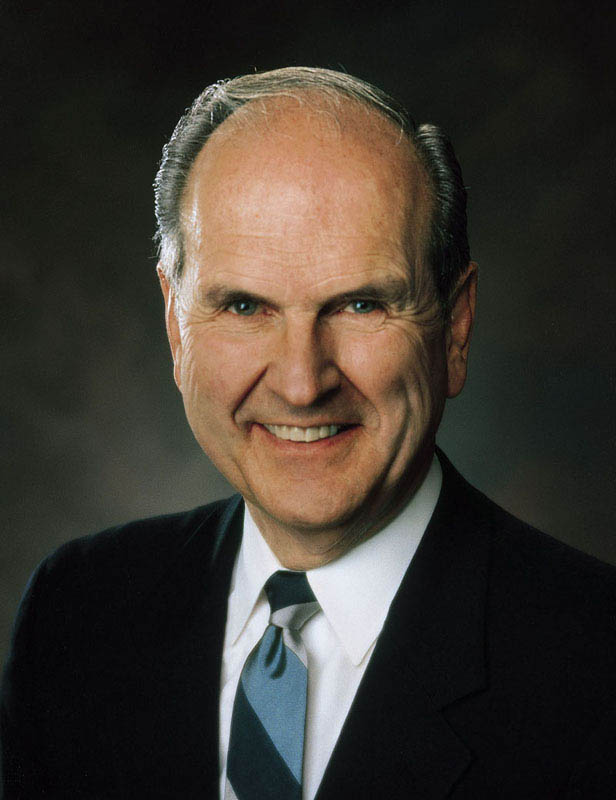 Honoring the Priesthood
Honoring the Priesthood
Assigned to each one who bears the priesthood is a loving leader, because “mine house is a house of order, saith the Lord God, and not a house of confusion.” That order also defines bounds of revelation. The Prophet Joseph Smith taught that “it is contrary to the economy of God for any member of the Church, or any one, to receive instruction for those in authority, higher than themselves. That same principle precludes receiving revelation for anyone outside one’s defined circle of responsibility. Honoring the priesthood also means to honor your personal call to serve. A few do’s and don’ts may be helpful: Do learn to take counsel. Seek direction from file leaders and receive it willingly. Don’t speak ill of Church leaders. Don’t covet a calling or position. Don’t second-guess who should or should not have been called. Don’t refuse an opportunity to serve. Don’t resign from a call. Do inform leaders of changing circumstances in your life, knowing that leaders will weigh all factors when prayerfully considering the proper timing of your release. The one who extends and the one who receives a call are both under obligation of accountability. I quote from Elder James E. Talmage: “Those through whom the call came to him … are as surely held answerable for their acts as is he for his; and of every one shall be demanded a strict and personal accounting for his stewardship, a report in full of service or of neglect, of use or abuse in the administration of the trust to him committed. Some aspects of the priesthood are not related to position or title. Authority to administer a priesthood blessing, for example, is dependent only upon ordination and worthiness. The Lord would not withhold blessings from any of His children for want of one with a particular calling. Every elder in the Church holds the same priesthood as the President of the Church. Brethren, please remember: The highest degree of glory is available to you only through that order of the priesthood linked to the new and everlasting covenant of marriage. Therefore, your first priority in honoring the priesthood is to honor your eternal companion.
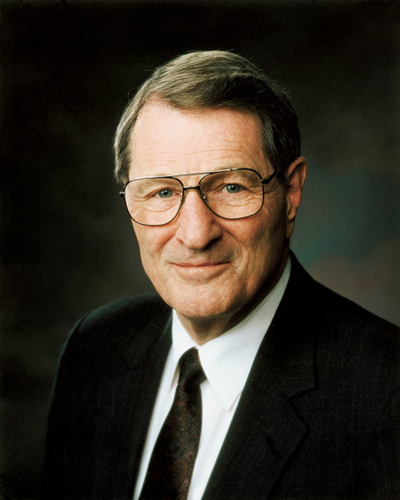 It’s Service, Not Status, That Counts
It’s Service, Not Status, That Counts
It is not the expanse of the ecclesiastical epaulets we wear on our shoulders, but our willingness to put our shoulder to the wheel that counts! Elder Richards’s candid, but warm, comment is a potent reminder regardless of where we serve. President J. Reuben Clark, Jr., likewise noted that it is not where we serve, but how. Dostoevsky observed that some people are willing to serve their fellowmen if they can do some grand act quickly, only once, and with much applause. Sometimes we prefer serving in those stations where there is more visibility; it isn’t that we are not called to serve, but where we are called to serve that troubles us. If this latter reason is why we feel un-called or under-used, we should make allowance for the possibility that God may have chosen to teach us certain lessons. Having said all of this, we need to remember, too, that while the doctrines of the kingdom are perfect, its people are imperfect. In fact, we can unintentionally transmit some of our defects to the environment in the part of the kingdom in which we serve. Part of maturing (so that we do not have exaggerated expectations about life in the Church—for things are not done perfectly and with mathematical precision) is simply to realize each of us is a part of it all! God’s basic purposes roll forward. He is mindful of our every act and every thought, and he is never surprised. How we handle challenges is a real key to our character. President Spencer W. Kimball has said that sometimes when we can’t change circumstances, the wise thing to do is to change our attitude about those circumstances. . . We are to be measured both in relation to the talents we have and to what we brought to bear on an assignment. The gross size of our talent inventories is less important than the net use of our talents. Just as the widow with her mite gave all that she had, so those with limited talents may give all they have. Others who are highly endowed may not give fully all of their talents, but hold back a portion of that which they have. Here are some simple things we can and should always do: 1. Put our shoulder to the wheel, rather than stepping back and yelling for someone to provide us a tow truck. 2. Beware of pride. 3. Beware of self-pity. 4. Beware of making comparisons. 5. Develop a personal sense of historical and scriptural perspective. 6. Accept the potential in each learning experience. 7. Count our blessings. 8. Develop multiple sources of satisfaction through wise and multiple services to mankind. 9. Search our souls to see if it is possible that in our present tasks we may be giving of our time, talents, and money without really giving fully of ourselves. Finally, this should sober us with sweetness: God does not begin by asking us about our ability, but only about our availability, and if we then prove our dependability, he will increase our capability!
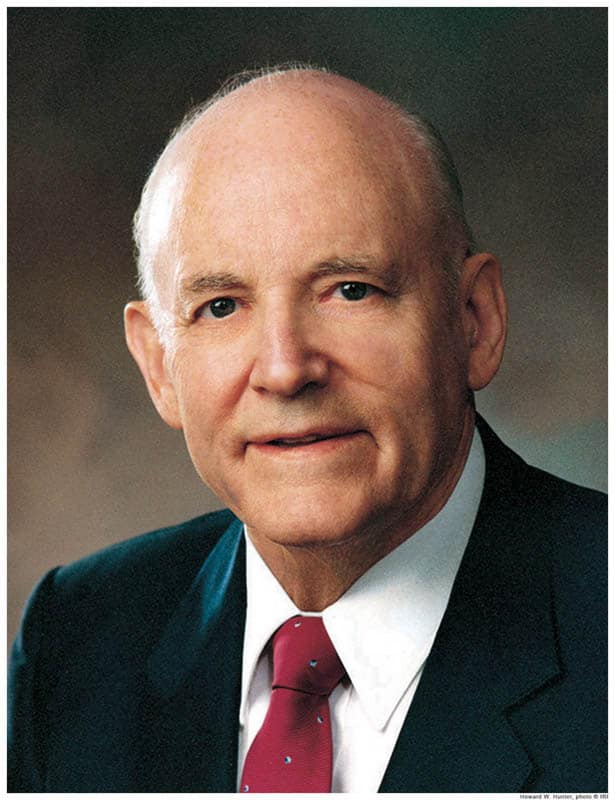 True Greatness
True Greatness
With this definition of true greatness, how do we proceed to achieve it? The Lord has said, “Out of small things proceedeth that which is great.” Each of us has seen individuals become wealthy or successful almost instantaneously, almost overnight. But I believe that even though this kind of success may come to some without a prolonged struggle, there is no such thing as instant greatness. This is because the achievement of true greatness is a long-term process; it may involve occasional setbacks. The end result may not always be clearly visible, but it seems that it always requires regular, consistent, small, and sometimes ordinary and mundane steps over a long period of time. . . As we evaluate our lives, it is important that we look, not only at our accomplishments, but also at the conditions under which we have labored. We are all different and unique individuals; we have each had different starting points in the race of life; we each have a unique mixture of talents and skills; we each have our own set of challenges and constraints to contend with. Therefore, our judgment of ourselves and our achievements should not merely include the size or magnitude and number of our accomplishments; it should also include the conditions that have existed and the effect that our efforts have had on others. . . It appears to me that the kind of greatness that our Father in Heaven would have us pursue is within the grasp of all who are within the gospel net. We have an unlimited number of opportunities to do the many simple and minor things that will ultimately make us great. To those who have devoted their lives to service and sacrifice for others and for the Lord, the best counsel is simply to do more of the same. To those who are doing the commonplace work of the world but are wondering about the value of their accomplishments; to those who are the workhorses of this Church, who are furthering the work of the Lord in so many quiet but significant ways; to those who are the salt of the earth and the strength of the world and the backbone of each nation—to you we would simply express our admiration. If you endure to the end, and if you are valiant in the testimony of Jesus, you will achieve true greatness and will live in the presence of our Father in Heaven.
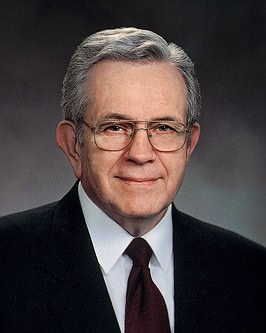 The Unwritten Order of Things
The Unwritten Order of Things
I will be speaking about what I call the “unwritten order of things.” My lesson might be entitled “The Ordinary Things about the Church Which Every Member Should Know.” Although they are very ordinary things, they are, nevertheless, very important! We somehow assume that everybody knows all the ordinary things already. If you do know them, you must have learned them through observation and experience, for they are not written anywhere and they are not taught in classes. So, as we continue, if you are ones that know it all, be patient while I teach those who do not–and take a nap. The basic foundation of knowledge and testimony never changes–the testimony that God the Father lives, that Jesus is the Christ, that the Holy Ghost inspires us, that there has been a restoration, that the fullness of the gospel and the same organization that existed in the primitive church have been revealed to us. Those things are taught everywhere and always–in our classes, the scriptures, the handbooks and the manuals–in everything we do. The fundamental doctrine and instructions on the organization of the Church are likewise found in the scriptures. In addition, there is another source of knowledge relating to what makes the Church work: We learn from experience and observation. If you learn about these things that are not written down, the unwritten order of things, you will be better qualified to be a leader–and you are going to be a leader. The most important positions of leadership are in the home–the father, mother, wife, husband, older brother and sister. Then, in the Church, positions of leadership and teaching opportunities are available as nowhere else on earth. While the things I will talk about are not written, they are really quite easily learned. Just be alert to the unwritten order of things and take an interest in them, and you will find that you will increase your ability and your value to the Lord. . . And so it goes. The Lord uses the ordinary Saints, the rank and file, to move his work along. Isn’t it strange that princes and kings And clowns that caper in sawdust rings And just plain folks like you and me Are builders for eternity? To each is given a bag of tools, A shapeless mass and a book of rules, And each must build ere life has flown, A stumbling-block or a stepping stone. –R. L. Sharpe, “Stumbling-Block or Stepping Stone”. The Church will move on, and it moves on just because the rank and file learn by observation, learn by teaching, learn by experience. Most of all, we learn because we are motivated by the Spirit. One day, of course, you who are young now will lead the Church. If in the intervening time you will learn and study the unwritten order of things, the power of the Lord will be upon you to the end that you might be the useful servant.
